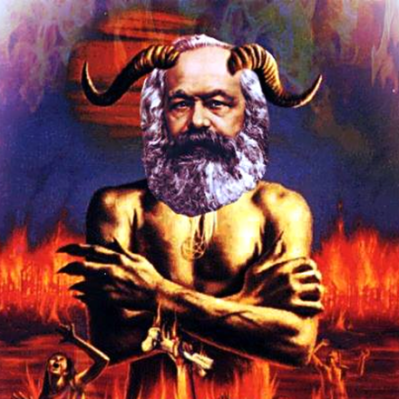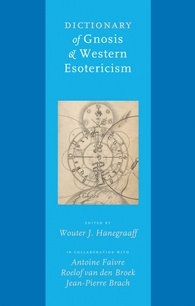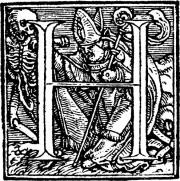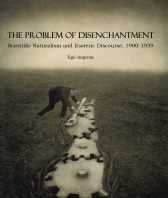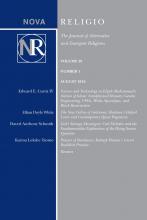 I was pleased to see this new review of The Problem of Disenchantment in the latest issue of Nova Religio. Christopher Plaisance generously concludes that
I was pleased to see this new review of The Problem of Disenchantment in the latest issue of Nova Religio. Christopher Plaisance generously concludes that
New review of The Problem of Disenchantment (Nova Religio)
ESSWE Thesis Workshop at the Warburg Institute (July 7, 2016)
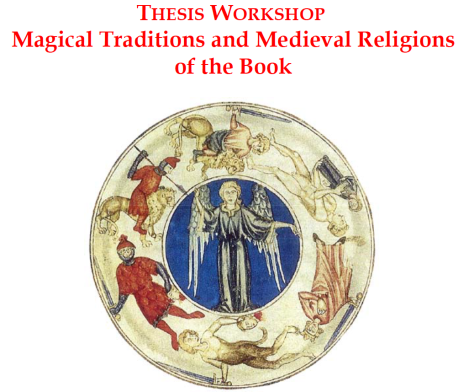 This summer, ESSWE organizes its fourth biannual Thesis Workshop – a one-day event where MA and PhD candidates get together with established scholars to discuss papers on a given topic as well as research strategies and career advice. (For a basic idea, check out what I’ve said about the 2010, 2012, and 2014 workshops) This year’s topic is “Magical Traditions and Medieval Religions of the Book”. Unlike earlier years, when this event took place in Amsterdam, this year’s workshop will be hosted by the Warburg Institute in London, on July 7.
This summer, ESSWE organizes its fourth biannual Thesis Workshop – a one-day event where MA and PhD candidates get together with established scholars to discuss papers on a given topic as well as research strategies and career advice. (For a basic idea, check out what I’ve said about the 2010, 2012, and 2014 workshops) This year’s topic is “Magical Traditions and Medieval Religions of the Book”. Unlike earlier years, when this event took place in Amsterdam, this year’s workshop will be hosted by the Warburg Institute in London, on July 7.
As in previous years, the day has two main sessions: an “oratory” (lectures by specialists), and a “laboratory” (group-based discussions of MA/PhD research related issues, divided by period and/or thematic focus based on what people are working on). In addition, this year there will be a round table discussion following the oratory, and an “early career advice” session (which will be lead by Liana Saif and myself).
The oratory will feature papers by Siam Bhayro, Liana Saif, and Adelina Angusheva-Tihanov, with a keynote by Jean-Patrice Boudet. These scholars will be available to participants in the laboratory session, as will the chairs Yuri Stoyanov, Charles Burnett, organizer Sophie Page, and most of the board members of ESSWE.
Check out all the details in the programme. And, please note that this is a free event with a limited number of places. Questions and reservations should be addressed to the organizer Sophie Page (see the programme).
Replacing the Dictionary: Brill launches new Esotericism Reference Library
It has been more than a decade since the Dictionary of Gnosis and Western Esotericism (2005) was released, the flagship volume of what was then a fledgling field with few reliable introductions and reference works. At the time this was a milestone achievement, pulled off by a dedicated editorial team, 147 authors, and taking the better half of a decade to complete.
That is not to say that the result was perfect. Although the Dictionary was selected a Choice Outstanding Academic Title in 2006, a number of criticisms of selection policy, range, and terminology were put forward and discussed in the academic community from the beginning.
Call for papers: “Trans-States: the art of crossing over”
There’s an exciting, experimental conference coming up this September at the University of Northampton, England. Featuring the legendary graphic novel author Alan Moore, the Crowley-biographer Richard Kaczynski, and the specialist of modern occultism and art Marco Pasi as keynote speakers, Trans-States is looking to be a very interesting trans-disciplinary event.
The call for papers is open until March 20. But beware: it is not just another academic conference, so the powerpoint with paper that is too long to read in 20 minutes is not the only possible medium:
New podcast interview on esotericism, CSR, and interdisciplinarity (in Norwegian)
Some months back, when I was still in California, Knut Melvær interviewed me for the Norwegian podcast Udannet. The episode is up now. In the unlikely case you have any interest in hearing me stutter on in Norwegian for an hour about my research, the academic study of esotericism, the difficulties of interdisciplinary work, CSR, and related trivia, go check it out. (Bonus feature: bizarre nervous giggling at the 9’50 mark, in response to the question: “But what do esotericism scholars really find out?” – I did have an answer in the end though, phew).
The scholastic imagination
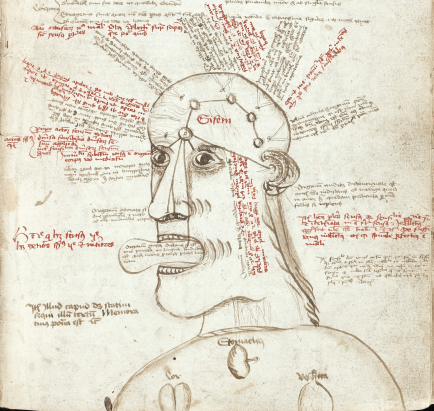
The human sensory and cognitive system, according to the German scholar Johan Lindner of Mönchenburg. Illustration to a manuscript copy of Aristotle’s De Anima (1472-1474), courtesy of the Wellcome Collection (MS 55).
I’ve recently been reading up on medieval theories of cognition. The background is a paper I’m writing on esotericism and “kataphatic practices” – contemplative techniques where the practitioner uses mental imagery, sensory stimuli, and emotions to try and achieve some religious goal: Prayer, piety, divine knowledge, salvation, etc. Kataphatic practices may be distinguished from “apophatic” ones, which, although they may be pursuing the same goals, use very different techniques to achieve them: withdrawing from sensory input and attempting to empty the mind of any content, whether affective, linguistic, or imagery-related (note that the kataphatic-apophatic distinction is more commonly used as synonymous with positive vs. negative theology – that’s a related but separate issue to the one I talk about here). My argument is that esoteric practices are typically oriented toward kataphatic rather than apophatic techniques. The cultivation of mental imagery is usually key – which means that the notion of “imagination” needs to be investigated more thoroughly.
Review symposium on “The Problem of Disenchantment”
The Journal of Religion in Europe has just published a review symposium on my book, The Problem of Disenchantment (2014). I’m excited to say that it contains critical reflections from three world-class scholars of religion, along with my own response. Hans Kippenberg, a well-known expert on Weberian approaches to the history of religion, evaluates some of the book’s claims in light of a broader reading of Weber’s oeuvre. Willem Drees, one of the leading figures in the “religion and science” field, takes a closer look at some of the points I made about the new natural theologies that emerged in the early twentieth century – specifically their relation to esotericism and “heterodoxy”. Finally, Ann Taves, a leading American scholar of religion working with (among other things) the cognitive science of religion and the notion of experience, continues a discussion that she and I have been having over the past few years regarding the perception, explanation and interpretation of “events” (for more on this, check out our forthcomming co-authored target article in Religion, Brain, & Behavior) . If you’ve got access, go ahead and read them!
While you are at it, you may also be interested in checking out my response, which I called “The Disenchantment of Problems: Musings on a Cognitive Turn in Intellectual History” (non-final version uploaded here, and added to my Academia page for easy access).
Why fear the history of science? A brief response to Don Wiebe
 I am more used to being labelled a “scientistic reductionist” than an “anti-science relativist”. While neither is particularly accurate, I was certainly surprised to see Don Wiebe review my book, The Problem of Disenchantment, as a “full-scale attack on modern Western science” (p. 1). Ironically, the review (published online in the journal Religion) appears side by side with an article of mine [free postprint here] that argues for consilience between the humanities and the sciences, so readers are likely to walk away a bit puzzled.
I am more used to being labelled a “scientistic reductionist” than an “anti-science relativist”. While neither is particularly accurate, I was certainly surprised to see Don Wiebe review my book, The Problem of Disenchantment, as a “full-scale attack on modern Western science” (p. 1). Ironically, the review (published online in the journal Religion) appears side by side with an article of mine [free postprint here] that argues for consilience between the humanities and the sciences, so readers are likely to walk away a bit puzzled.
Since the charge of anti-science is a serious one, however, and since it comes from a well-respected scholar whose ardent support for a scientific and secular study of religion I have, in fact, admired since my undergraduate days, it seems necessary to take a moment to clarify some crucial issues that appear to get mixed up in the review.

